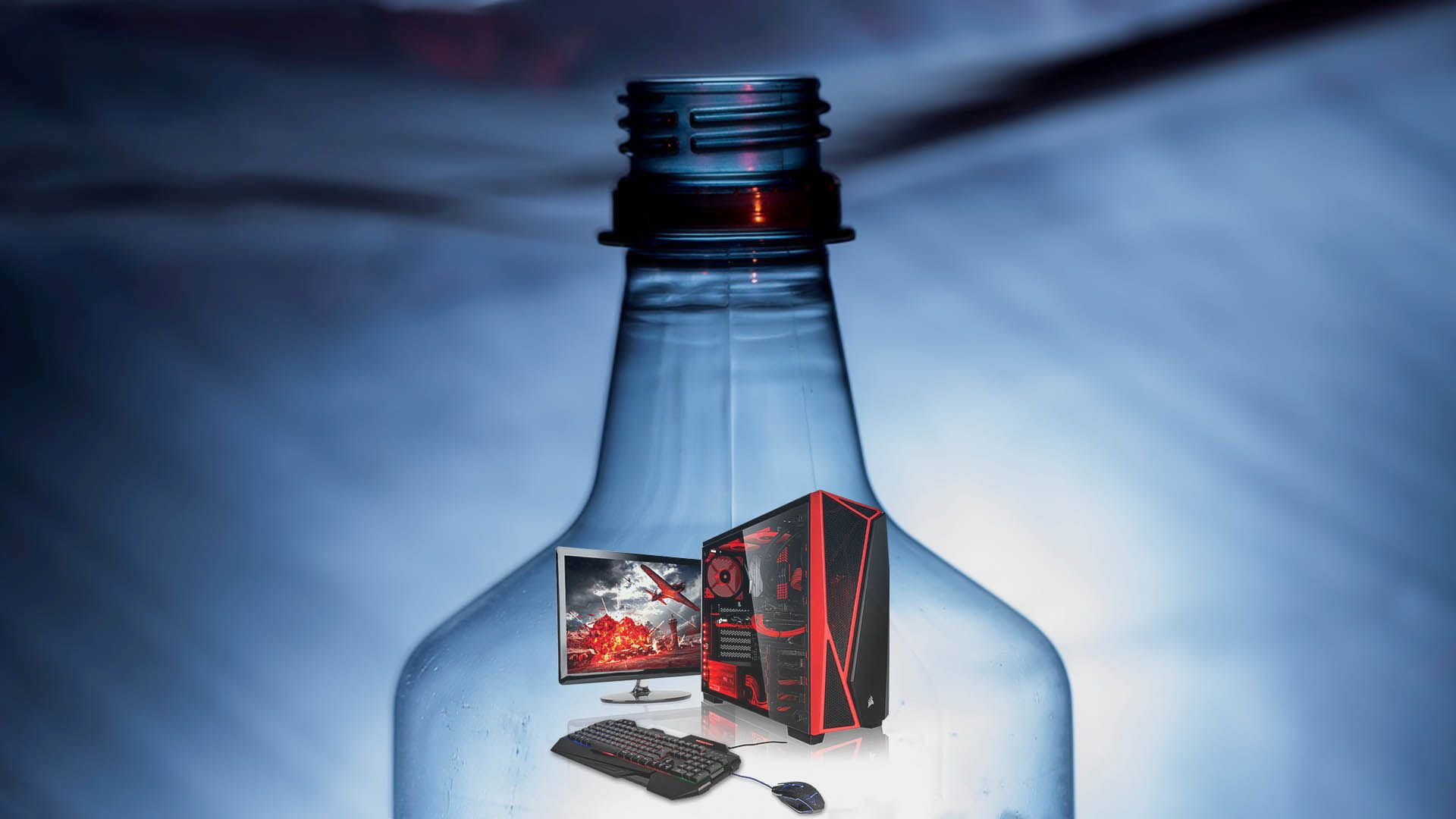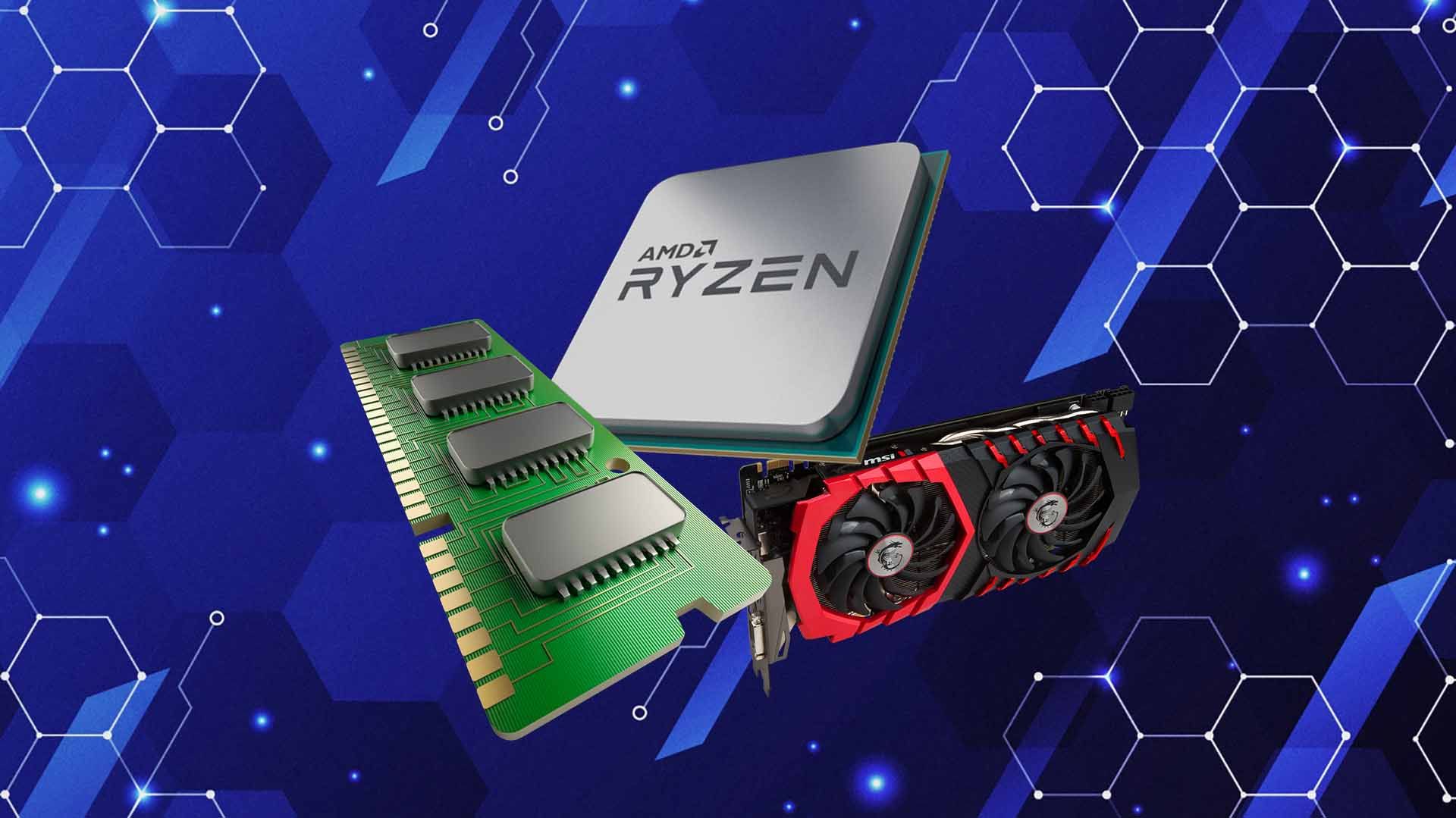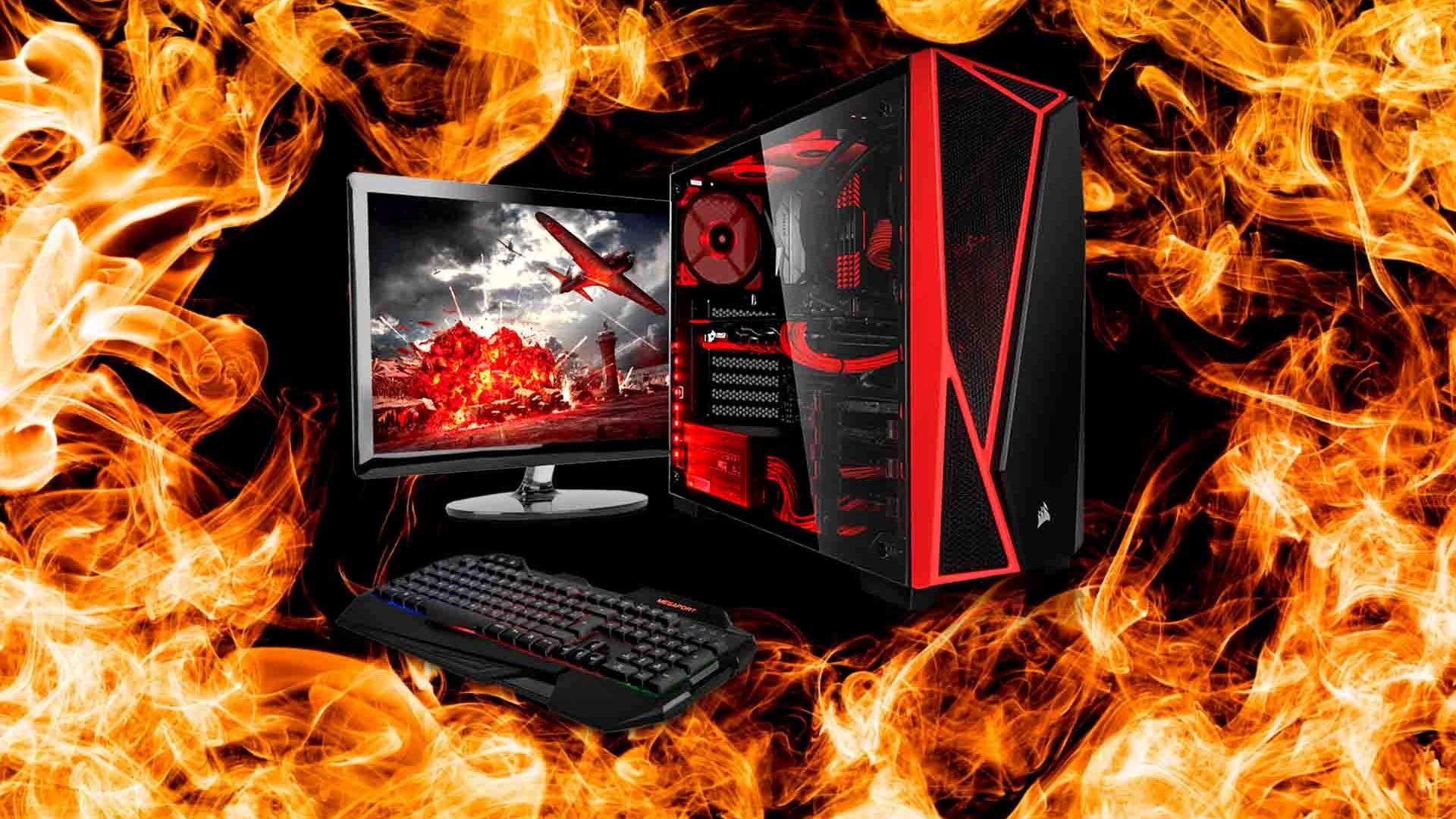
Surely you and most gamers consider it ideal to have a PC with specifications that allow them to play their favorite video games for hours without worrying about anything other than completing your missions or tasks.
However, it may happen that one day the game does not run or does so poorly. It is likely to be a hardware bottleneck.
Do you want to find out what it is and how to fix it? Then join us in this post.
What is a PC bottleneck?
Surely before this post you only associated the term bottleneck with the traffic in your city. In the context of a PC, a bottleneck is a problem that it experiences when there is a mismatch in the performance of the CPU, RAM or graphic card. This means that if one of them performs poorly, the performance of the other two components will suffer, so that in the end neither can respond effectively to the demands of the game or task you are trying to run.
Processor, RAM, and Graphic Card: The Three Musketeers in Your PC’s Performance

In the gaming world, the RAM, the processor (CPU) and the graphics card (GPU) are the main components that most gamers take into account when looking to build or buy a PC for gaming. This is why it is important to know them to better understand the concept of bottleneck and its origin. Let’s see the role played by each one of them:
- Processor (CPU): It is the heart of your PC; what gives it the ability to execute instructions and process data. But for this to be possible, the graphics card and RAM must be up to its capabilities.
- RAM: This serves as a temporary storage medium for data that the CPU needs to access quickly. So, if your PC has an insufficient amount of RAM, there will be few applications that it can run simultaneously. This situation could also prevent the execution of games that have a considerable demand for this resource, resulting in a slow performance of your PC.
- Graphics Card (GPU): Graphics card (GPU): Its job is to make video game graphics look and flow optimally on the PC. If you are a gamer used to playing games with heavy graphics, it is essential that your PC has a powerful graphics card.
It is important that the performance of these three components is kept in harmony. This not only ensures that a bottleneck is not created on your PC, but also that you can enjoy your favorite video games without problems.
Can Overheating Cause Hardware Bottleneck?

If your computer feels hotter than normal, be careful because this represents one of the most notorious signs of a hardware bottleneck.
Overheating occurs when the CPU or GPU reaches a temperature above what it normally generates. In this situation, its performance is reduced in an attempt to regulate its temperature and avoid irreversible damage to its structure. This action is known as thermal throttling. When analyzing it in detail we find that overheating in any of these components can be caused by factors such as:
Inadequate Ventilation
Is your PC located in a place where the air does not circulate sufficiently? This can cause the components inside the case to generate much more heat than usual. Move it to a cooler environment.
Inefficient Heatsinks
A heatsink works by reducing the temperature of some electronic components of your PC. It may happen that the temperature of your PC’s CPU or GPU is not being regulated correctly due to a failure of this component.
Dust Accumulation
Over time dust tends to accumulate on your PC’s fans and heatsinks, which help keep the temperature of the CPU and GPU at the right level. Make sure to keep them dust-free to make their job easier. The result of that is that the CPU temperature would rise above normal and harm its performance.
Therefore, if your PC overheats while you are playing games or doing any other activity, check if this situation is caused by any of the reasons mentioned above.
How Do I Know if My PC is Having Performance Problems?

Another way to check if the bottleneck is affecting the performance of your PC’s CPU, RAM or graphics card is to look at its performance. Here are some methods you can put into practice to measure this aspect:
Task Manager
Thanks to this native Windows tool you can see the CPU, RAM and GPU usage in real time.
To see it on screen you have to press the key combination “Ctrl + Shift + Esc” or “Ctrl + Alt + Del”. Then click on “Task Manager” and then click on the “Performance” tab. There you will find graphs that will let you know in real time the performance of the CPU, RAM and GPU installed on your PC.
Look at the CPU usage percentage while running normal tasks on your PC. If this remains at 90% or more, it is probably this element that is causing the bottleneck in your PC. In the case of RAM, if the percentage used of this resource is close to 100% then you may need to increase it to improve the performance of your PC.
Temperature Meters
With the help of specialized software, you can easily check the temperatures of the hardware installed in your PC. If these exceed 80 or 90 °C then turn on the alarms because this could be a sign of thermal throttling.
Benchmarks
Benchmarks are comparative tests that you can perform on your PC to measure the power and processing speed of your CPU to see if its performance has decreased. To do this you have free tools that analyze your CPU’s performance and assign a rating based on a set number. If the score obtained is lower than that number it means that you will have to improve these aspects as far as possible.
Hardware Bottleneck: Final Words
Hardware bottleneck is undoubtedly a problem that can harm the execution and performance of your video games on the PC. It is therefore necessary that you put into practice what you have learned in this post to solve this situation.
Keep in mind that the CPU, RAM and graphics card are elements that need to be kept running optimally at all times. That way they can withstand the high demands that games like League of Legends or Call of Duty can have while you play them.
Also, make sure to keep the case well ventilated, free of dust, and check that the heatsinks are doing their job regulating the temperature. If you feel that your PC’s performance has dropped, check it through the Task Manager, look up the temperature of its components and submit your CPU to benchmarks to measure its performance.
Gaming PerformanceHardware BottleneckPC Gaming Tips
